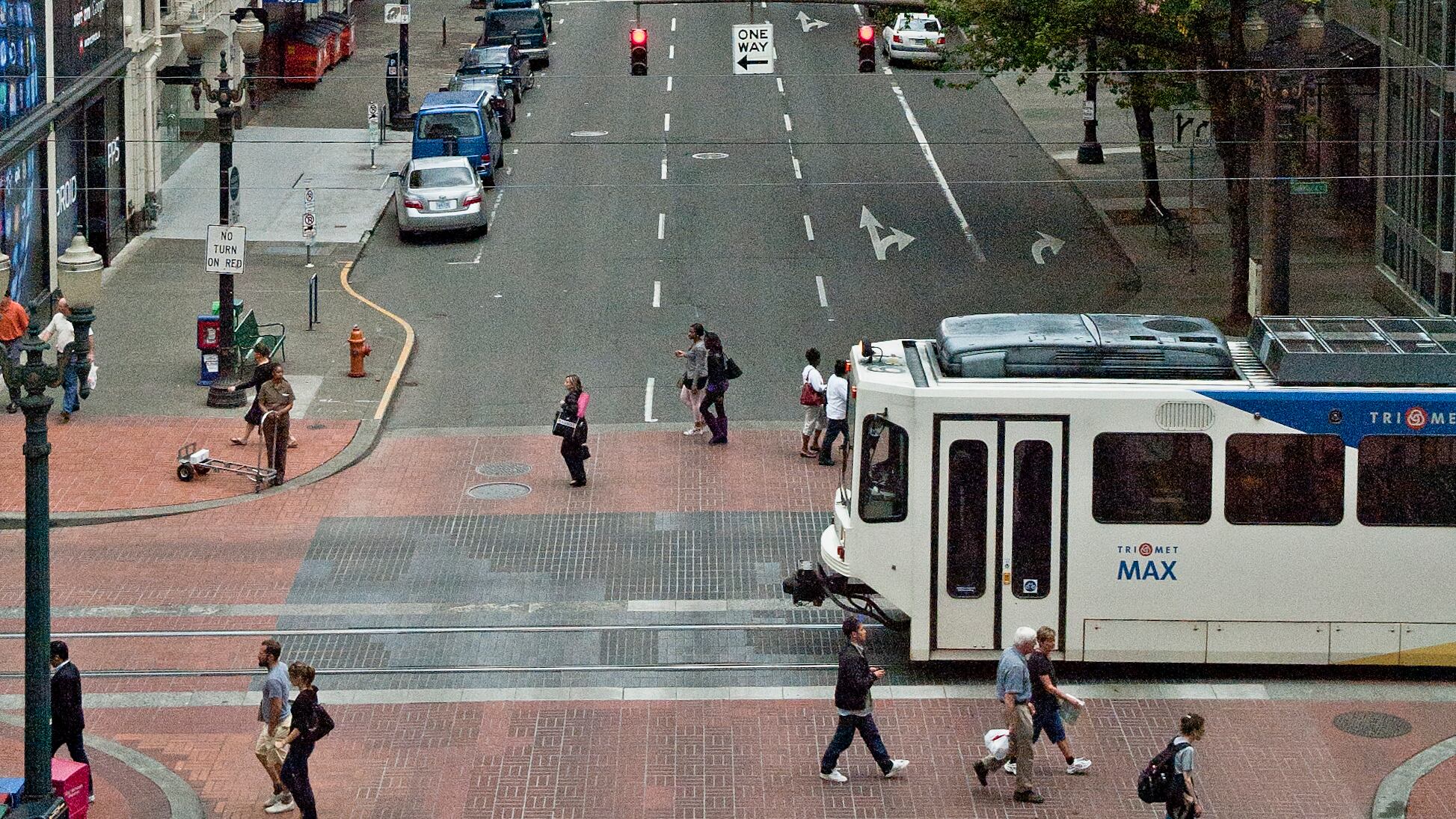A Street Roots vendor says he was fined $175 yesterday by a TriMet fare inspector for failing to pay, even though he'd recently purchased a pre-paid Hop pass.
Mark Rodriguez, Street Roots tweeted this morning, is 64 years old, on Medicare and homeless. He uses public transportation to travel from the Street Roots office in Old Town to where he sells papers at the Stadium Fred Meyer.
He said he was falsely fined and profiled by fare inspectors, and he plans to contest the citation. Rodriguez said he purchased a $28 honored citizens pass on Nov. 1, but he forgot to tap the Hop pass to process a payment when he got on the MAX train yesterday.
"I said, 'Please don't give me a ticket. I have the receipt where I paid for it,'" Rodriguez said. "[The fare inspector] said 'That's not good enough.' I wanted the monthly passes for this very reason.'"
Thread: This morning, Street Roots vendor Mark Rodriguez arrived at the office for the Friday morning new paper meeting angry and confused. Yesterday he received a $175 citation for failure to pay a fare on the Max train.
— Street Roots (@StreetRoots) November 8, 2019
TriMet has been slowly phasing out paper tickets and its mobile ticketing app in favor of physical and mobile Hop passes. It plans to fully transition to Hop payments by the end of the year.
His story also arrives as several advocacy groups—including Street Roots—call for TriMet to eliminate fares altogether. Last month, the agency added nine new fare inspectors to city transit. That decision was met with intense pushback on social media, and criticism that TriMet was making it harder for Portland's poorest citizens to ride.
Related: The Double Slaying on the MAX Intensifies Debate Over TriMet's Plans to Increase Transit Police
Tia York, a spokesperson for the TriMet, tells WW the transit agency does not plan to rescind Rodriguez's fine, but that he can request a hearing. "It's unfortunate," she says, "that Mr. Rodriguez misunderstood how the Hop card works and as a result was cited."
"We understand how vital transit is for our community, and we want everyone to ride without worry of inadvertently getting a citation," she says. "Just be sure to tap every time you board, and you'll never have an issue."
York adds that the new Hop cards work like gift cards, which users load money onto and tap to pay when entering trains and busses.
"If you don't tap, then the money loaded on to the card just stays there and is never deducted," York says. "Your tap is your proof of payment and valid fare."
Street Roots said in its tweet that Rodriguez's story "reinforces why Street Roots is calling for a deep exploration into what a free public transit system would mean for the region."
Free public transit doesn't appear to be on the horizon for Portlanders, however. In an interview with WW in February, TriMet general manager Doug Kelsey said "I don't share that the transit should be free. Firstly, to be free, someone is going to have to write a really big check out of another pocket of the same pair of jeans."
York says Kelsey's comments still stand, and that fares are TriMet's second-largest revenue source.
Street Roots tweeted that because of a broken hip, "[Rodriguez] will continue to use public transit," but that his story exemplifies "the system working exactly as it's intended, and these are the people it hurts."
"Is this to teach him a lesson—to make him pay his fare?" it said. "He paid his fare. And he had the proof."
